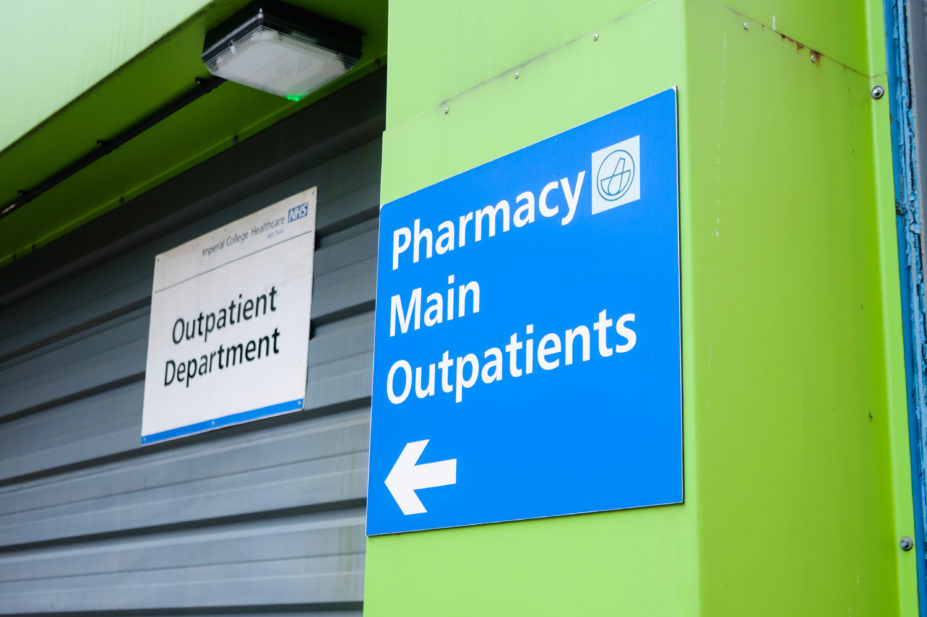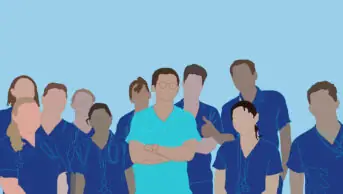
Stephen Barnes / Medical / Alamy Stock Photo
NHS staff, including hospital pharmacists, could withdraw from voluntary rotas and weekend work as goodwill begins “running out”, following the government’s pay award for 2022/2023, the president of the Guild of Healthcare Pharmacists (GHP) has warned.
In July 2022, the government in England and Wales announced plans to award NHS staff pay increases worth at least £1,400 backdated to 1 April 2022.
However, Unite — the national trade union of which GHP is a member — described the pay award as “a kick in the teeth” and opened a ballot in August 2022, asking NHS staff in England and Wales whether industrial action should be taken in response.
The ballot will close in September 2022, with Unite warning that strikes could occur this winter.
Speaking to The Pharmaceutical Journal in August 2022, Nathan Burley, who was elected as president of the GHP in July 2022, said that the pay award could result in “less willingness of people to work extra”.
“I think that the NHS, depending on which profession, runs on goodwill for a lot of services. And I think that people will be less willing to do that when they have been awarded — and I use that term loosely — a real terms pay cut,” he said.
“I think we’ll begin to see issues with weekend services, additional services, and we’ll see goodwill running out.”
However, Burley added that if NHS staff vote in favour of industrial action, it “doesn’t just mean strike”.
“It can be a variety of things. Work to rule — so working to the exact letter of your contract. It can be following standard operating procedures to the letter. I know that within the pharmacy profession, we have a lot of standard operating procedures and sometimes people take shortcuts in order to meet service demands. So, people could follow that,” he said
“People could take the time to log error reports, which they should do. So, they could decide to perhaps submit all their Datixs that are overdue over a course of a day. They could take out their support for voluntary rotas, to do with weekends.”
While Unite has recommended its members vote in favour of industrial action, Burley clarified that “the GHP doesn’t want industrial action”.
“What we want is fair pay,” he said. “But if that is the course that this runs, because we’re a membership-led organisation, then that’s what [industrial action] could look like.”
A spokesperson for the Department of Health and Social Care said in a statement to The Pharmaceutical Journal on 30 August 2022: “We accepted the recommendations from the independent NHS pay review bodies in full, giving over one million NHS workers, including hospital pharmacists, a pay rise of at least £1,400 this year.
“We want a fair deal for staff and we know that very high inflation-driven settlements would have a worse impact on pay packets in the long run than proportionate and balanced increases now. Industrial action is a matter for unions, and we urge them to carefully consider the potential impacts.”
They added that NHS England would work with providers, professional bodies and trade unions to agree the safe level of cover during any industrial action.
Burley also told The Pharmaceutical Journal that medicine shortages are impacting patient care “frequently, either directly or indirectly through clinicians and other clinical staff members being occupied by something that increasingly takes a lot of their time” and called for “better communication from pharmaceutical companies” about where stock is sitting in the supply chain.
In July 2022, the Pharmaceutical Services Negotiating Committee warned that pharmacists face “a critical situation trying to source medicines in [a] timely manner”.
Then, in August 2022, The Pharmaceutical Journal reported that more than half (54%) of pharmacists surveyed had answered ‘Yes’ when asked if medicines shortages have put patients at risk “in the past six months”.
You may also be interested in
